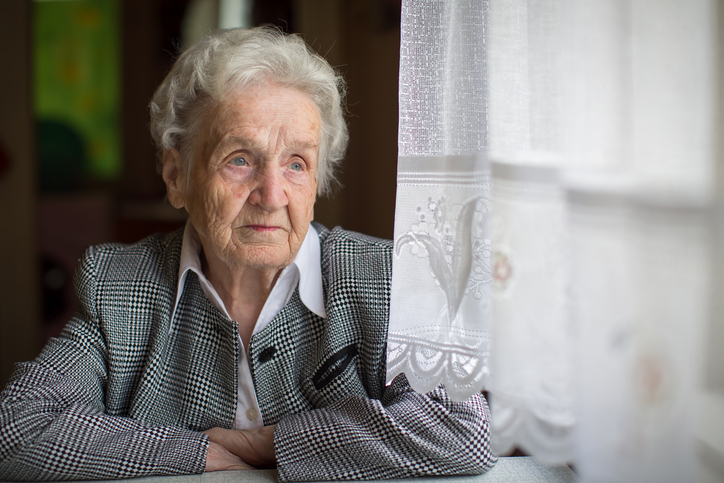
As our loved ones grow older, it’s natural to wonder when it’s time for them to consider different living arrangements. The decision to move an older parent from living alone to a retirement community is one that requires considerable thought and sensitivity. In this article, we will look at the indicators that it is time for a change as well as the benefits of an Arcadia retirement community.
Recognizing the Need for Change
As our loved ones grow older, it’s critical to be aware of warning signals that they may require alternate living arrangements. Here are some warning indicators to check for:
Declining Physical Health: If you observe your elderly parent having difficulty with daily routines such as washing, dressing, or preparing meals, this could be an indication that living alone is becoming increasingly difficult for them. Physical problems such as chronic pain, mobility challenges, or fragility might make it difficult for them to maintain a safe and comfortable living environment.
Memory Loss and Cognitive Decline: Memory loss, disorientation, or cognitive decline can have serious consequences for a senior’s safety and capacity to live independently. If your loved one frequently forgets critical duties, becomes disoriented, or has difficulty making decisions, this could be an indication that their cognitive abilities are deteriorating. These concerns, such as forgetting to take medication or becoming disoriented outside the home, can be dangerous.
Social Isolation and Loneliness: Feelings of isolation and loneliness can have a negative impact on the mental and emotional well-being of an aging parent. If they lack social connection or find it difficult to sustain relationships, it may be time to consider relocating to a more socially involved community. Social isolation can result in melancholy, anxiety, and a general deterioration in health.
Concerns about safety: Examine your parent’s present living arrangements for safety. Are there any possible hazards, such as steep stairs, slick floors, or insufficient restroom facilities? Are they at risk of falling or having an accident? Consider their abilities to respond to emergencies and deal with unforeseen scenarios. If their safety is jeopardized, it may be time to consider other living arrangements.
Caregiver Burnout: If you or other family members are caring for an aging parent and are feeling overwhelmed or burned out, it is critical to realize the toll it can take on your own health. Juggling caregiving responsibilities, work, and personal life on a regular basis can lead to weariness and impair your capacity to deliver the best care. Moving your loved one to a retirement community can relieve stress and guarantee they receive the care and assistance they require.
The Benefits of an Arcadia Retirement Home:
Safe and Secure Environment: Arcadia retirement homes prioritize their residents’ safety and security. You may have peace of mind knowing your loved one is in safe hands in a secure environment, thanks to round-the-clock staff and strengthened security measures.
Personalized Care and Support: Expert staff in Arcadia Retirement communities provide personalized care plans suited to each resident’s specific requirements and preferences. Residents receive the tailored care they need to thrive, from medication management to aid with daily responsibilities.
Engaging in Social Activities: Arcadia Retirement homes recognize the value of social connection for seniors’ mental and emotional well-being. They plan a variety of activities, events, and outings to keep people involved, build a sense of community, and alleviate loneliness.
Health and Wellness Services: Arcadia retirement homes encourage a healthy lifestyle by providing access to fitness centers, wellness programs, and nutritional meals. These amenities help elders maintain their physical health and well-being.
Independence and liberty: Transitioning from living alone to a retirement community may feel like a loss of independence at first, but Arcadia Retirement communities try to empower members and promote their autonomy. They encourage elders to make decisions, follow their interests, and keep control over their life.
Making the Transition
Making the decision to move an older parent to a retirement community can be a difficult and emotional process. Here are some crucial actions to take when making the transition:
Open and Honest Communication: Begin the dialogue with your elderly parent early and include them in decision-making. Approach the conversation with empathy, understanding, and consideration for their feelings and desires. Pay close attention to their issues and resolve any reservations they may have regarding the move.
Research and Visit Potential Retirement Communities: Investigate the many retirement communities in your area. Consider location, amenities, services provided, and the general ambiance and setting. Schedule visits to various communities so your parent may see the facilities firsthand and meet the staff and residents.

Assess Individual Needs and Preferences: Each individual has unique needs and preferences. Consider your aging parent’s individual care needs, such as support with activities of daily living, medication administration, or specialty healthcare needs. Look for retirement communities that offer personalized care programs that are suited to their specific needs.
Evaluate Safety and Security Measures: When selecting a retirement community, safety should be a primary priority. Inquire about the security measures in place, such as the availability of staff 24 hours a day, emergency response systems, and surveillance systems. Ascertain that the community is prepared to manage medical emergencies and that mechanisms are in place to safeguard the safety of its residents.
Engage in the Transition Process: Once a decision has been made, involve your parent in the transition process as much as possible. Allow them to make choices about their living space, belongings, and personal objects. This involvement might help individuals feel in control and ownership of their new living situation.
Provide Emotional Support: Your parent may find it difficult to adjust to a new living situation. Throughout the transition period, provide emotional support. Be patient, empathetic, and open to hearing their concerns or fears. Encourage visits and conversation and assist them in maintaining connections with friends and family members.
Adjustment and follow-up: Stay involved and follow up on a frequent basis after the move to check that your parent is adjusting well to their new situation. Address any complaints or issues as soon as possible, and collaborate with the retirement community staff to make any required changes to their care plan or living circumstances.
Remember that moving your loved one to a retirement community can be a positive step toward improving their quality of life, guaranteeing their safety, and providing them with a friendly and engaging atmosphere. You may assist your parent embrace this new chapter of their life with confidence and well-being by addressing the transition process with empathy, understanding, and open communication.
Find an Arcadia Retirement Community for you or a loved one Today
If you think it may be time for your elderly parents to stop living alone, consider Trinity Hills Estates. Our community provides the care and support they need. Contact us at (626) 320-8635 or visit our website to learn more about how Trinity Hills Estates can enhance their quality of life.





